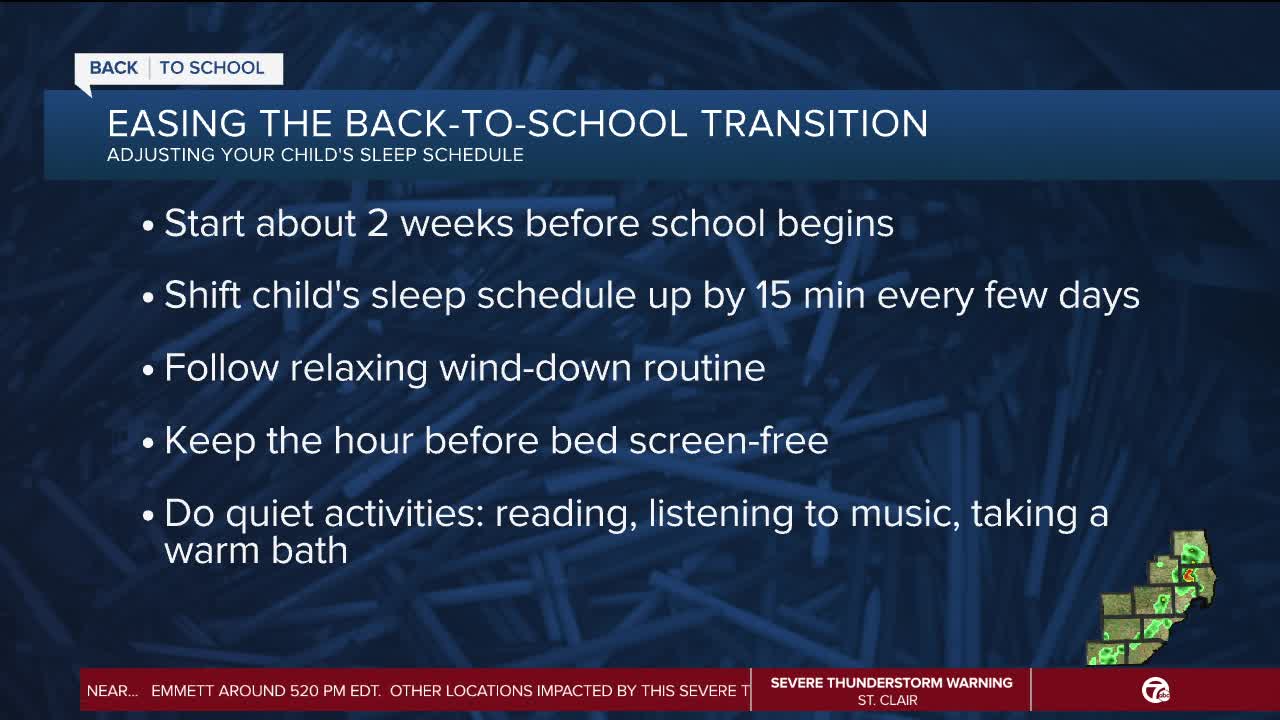(WXYZ) — In today’s Health Alert, many families are getting ready for back-to-school. But it’s not always easy to get kids back on track after summer break.
As a dad of three boys, I know this challenge well! The key is to make gradual changes. Jumping straight into early mornings can be tough for kids, so easing them back slowly helps their bodies adjust naturally without stress. It also makes mornings smoother for parents!
I’d recommend starting about two weeks before school begins. Try shifting your child's sleep schedule by about 15 minutes every few days. At night, have them go to bed 15 minutes earlier and get up 15 minutes earlier.
Also, in the last couple of hours before bedtime, try to follow a relaxing wind-down routine that helps kids calm down. At the Nandi household, we keep the hour before bed screen-free. That means no phones or tablets. We also do quiet activities like reading, listening to music, or taking a warm bath. It really sets the stage for a good night’s rest.
Lastly, I also recommend that parents do a morning dress rehearsal. Practice the whole routine, including breakfast, getting dressed, and packing backpacks in the days leading up to the start of school.
Many studies show that kids who are exposed to blue light before bed don’t sleep as well. That’s because it’s a short-wavelength type of light that boosts alertness. Blue light from gadgets like phones, tablets, game devices, and TVs can actually trick the brain into thinking it’s daytime. And this delays the release of melatonin, the hormone that helps us fall asleep. So, screen time before bed not only makes it harder for kids to fall asleep, but can lower the quality of sleep overall.
Now, how does lack of sleep affect kids? Well, parents know that they’ll be tired and cranky, but it also affects concentration. Sleep is the foundation for children’s mood, focus, and forming and retaining memories - all essential for learning and success at school.
Even losing an hour or two of sleep each night adds up, leading to a “sleep debt”. And that affects behavior and learning. School-age children need between 9 and 12 hours of sleep, and teenagers need 8 to 10 hours.
From my experience with my kids, when they stick to a regular routine and avoid screens before bed, they’re happier, more focused, and ready to learn.




